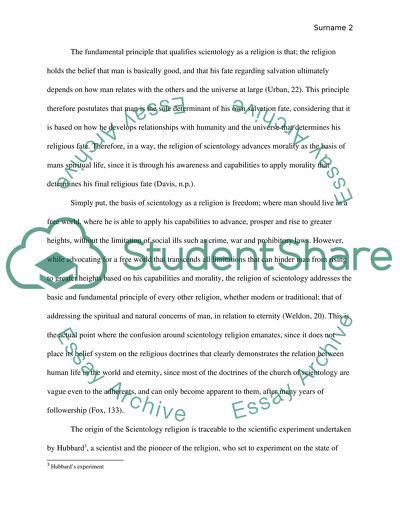Cite this document
(“Scientology Essay Example | Topics and Well Written Essays - 1500 words”, n.d.)
Scientology Essay Example | Topics and Well Written Essays - 1500 words. Retrieved from https://studentshare.org/religion-and-theology/1492822-scientology
Scientology Essay Example | Topics and Well Written Essays - 1500 words. Retrieved from https://studentshare.org/religion-and-theology/1492822-scientology
(Scientology Essay Example | Topics and Well Written Essays - 1500 Words)
Scientology Essay Example | Topics and Well Written Essays - 1500 Words. https://studentshare.org/religion-and-theology/1492822-scientology.
Scientology Essay Example | Topics and Well Written Essays - 1500 Words. https://studentshare.org/religion-and-theology/1492822-scientology.
“Scientology Essay Example | Topics and Well Written Essays - 1500 Words”, n.d. https://studentshare.org/religion-and-theology/1492822-scientology.


